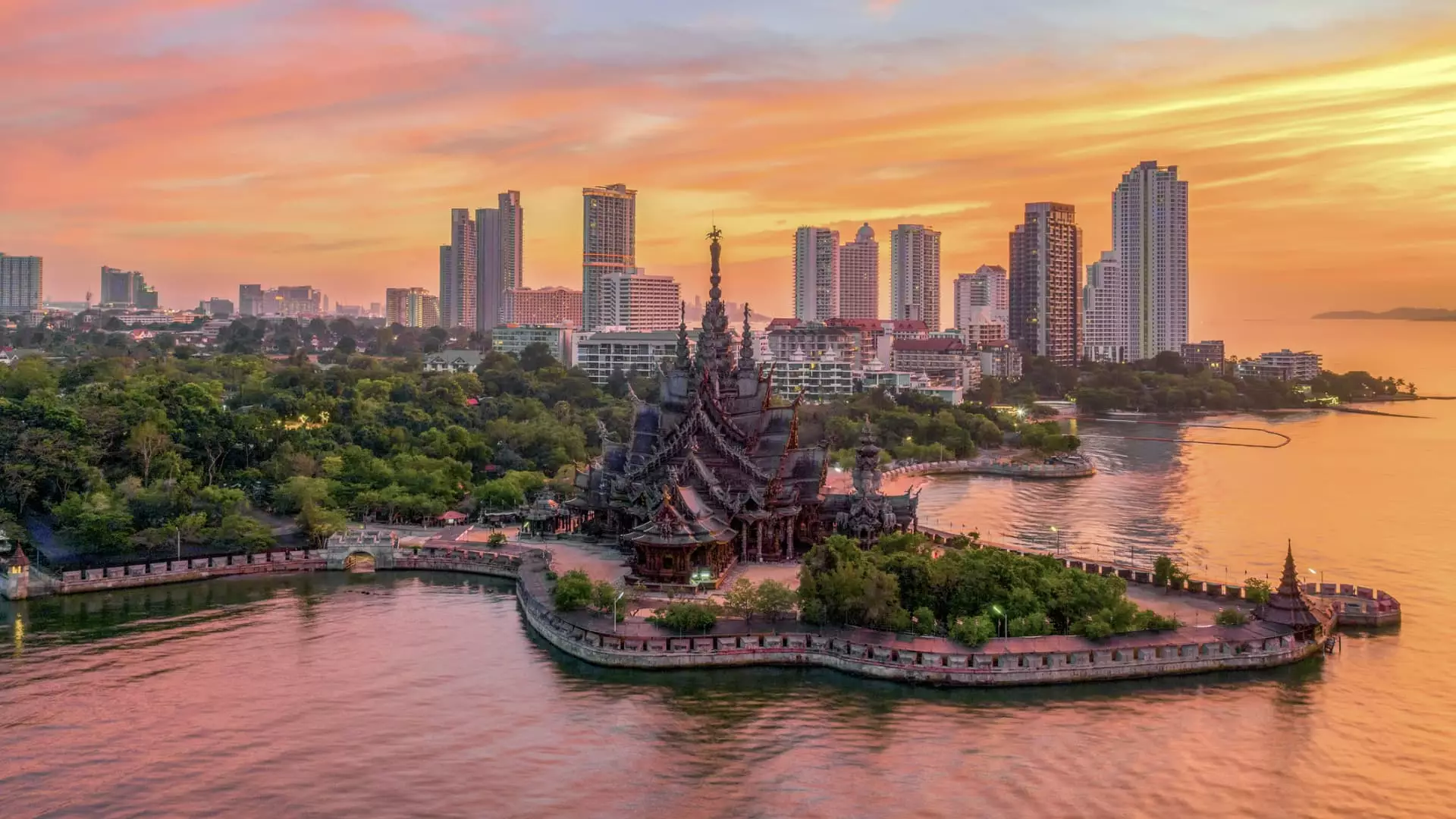Thailand is exploring a new avenue to enhance foreigner arrivals and elevate tourism spending by considering the development of casinos. This shift follows the successful models demonstrated by Macao and Singapore, both thriving gambling hubs in the global arena. With the potential passage of Thailand’s casino bill, it aims to position itself as a formidable competitor to Macao and Singapore by the end of the decade.
Tourism plays a pivotal role in fueling Thailand’s economy, although its growth has been sluggish in recent times. With the aftermath of the Covid-19 pandemic, the country has yet to witness a complete rebound in tourist arrivals, particularly awaiting the return of Chinese travelers in full force. In 2023, around 28 million foreign visitors arrived in Thailand, a far cry from the nearly 40 million tourists in the pre-pandemic year of 2019.
Former Thai Prime Minister Srettha Thavisin initiated the drafting of a bill to legalize entertainment complexes as a way to potentially boost tourism spending, employment rates, and reinvigorate the Thai economy. While gambling, besides state lottery or licensed horse betting, remains illegal in Thailand, there is a growing optimism that the bill would be implemented despite the recent political changes.
The potential enactment of the casino bill could pave the way for Thailand to generate substantial revenues amounting to 187 billion Thai baht ($5.5 billion), equivalent to 1% of the country’s GDP as per Maybank research. With the Thai economy expected to grow steadily, these projected profits from casinos could significantly contribute to the overall economic landscape of Thailand.
While the government has yet to unveil the precise locations for future casinos, industry analysts anticipate that they may bypass the bustling capital of Bangkok. Instead, the focus could shift towards developing casinos in sparsely populated areas like the Eastern Economic Corridor encompassing Rayong, Chonburi, and Chachoengsao. This approach differs from Macao’s casino clustering model and aims to stimulate growth in underdeveloped regions.
Despite the promising prospects of Thailand’s casino industry, there are inherent challenges that need to be addressed. Criticism has been raised regarding the success of casinos in isolated settings and the necessity for integrated resorts to cater to a broader demographic beyond mere gambling enthusiasts. Furthermore, regulations concerning entrance fees and licensing requirements remain pivotal in shaping the future of Thailand’s gambling landscape.
As Thailand contemplates the establishment of multiple casinos across its territory, there is a growing sentiment that it could potentially rival Singapore’s market in popularity and financial gains. However, industry experts maintain that Macao’s dominance in the gambling sector is likely to endure. The revenue differentials between Thailand, Macao, and Singapore underscore the arduous yet rewarding journey that lies ahead for Thailand’s burgeoning casino industry.
Thailand’s strategic shift towards embracing casinos as a means to revitalize its tourism sector and foster economic growth signifies a bold step into uncharted territory. With careful planning, regulatory oversight, and strategic partnerships, Thailand could emerge as a prominent player in the Asian gambling landscape. The evolution of Thailand’s casino industry will undoubtedly be a significant development to monitor, reflecting the country’s aspirations for sustained economic prosperity and international competitiveness.

